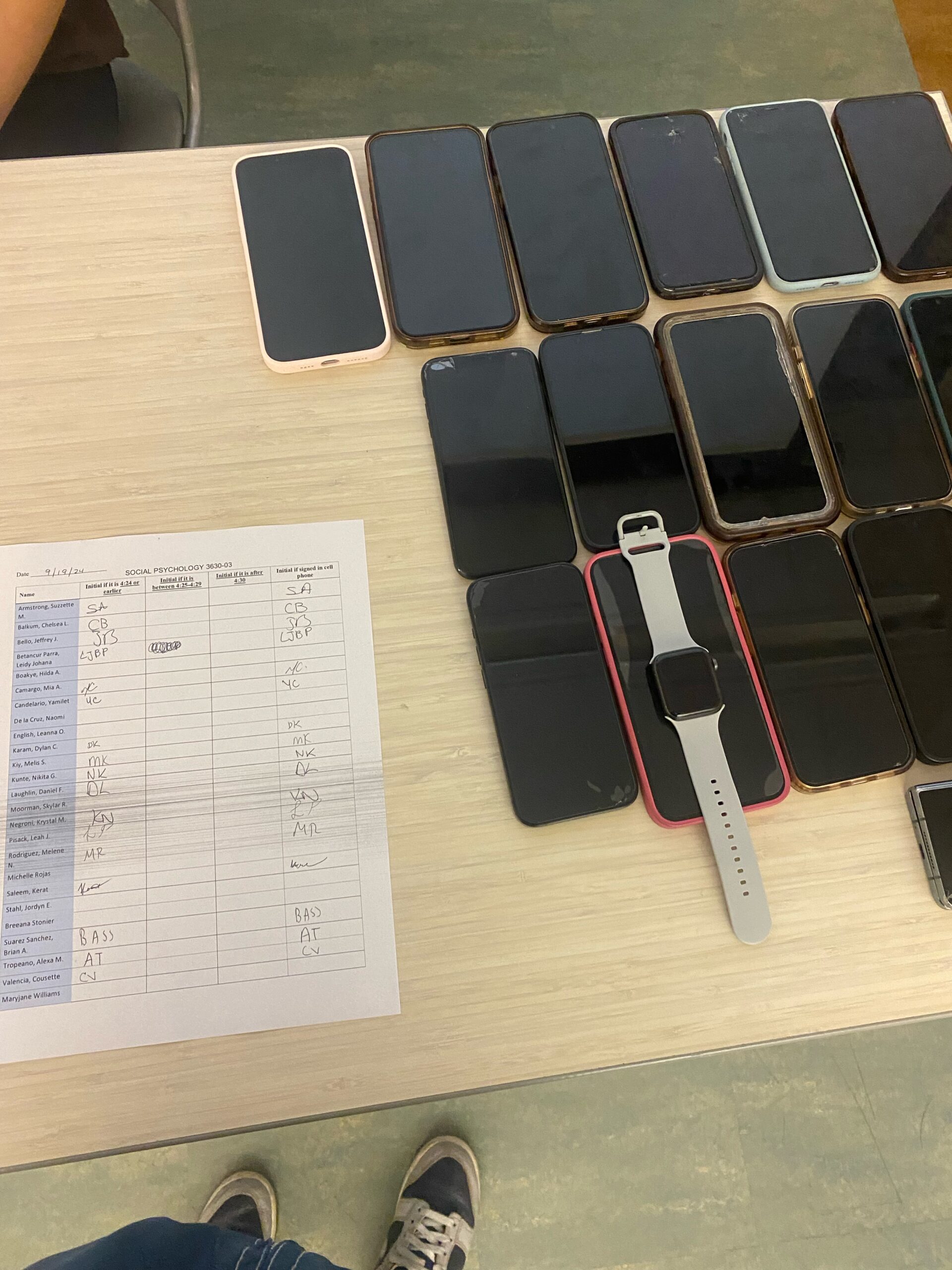By Layah Lopes
Could you spend an entire class period without your phone or laptop? Research suggests that
taking notes on laptops is not superior to using a pen and paper.
Professor Shai Tabib, a psychology professor at Kean, has developed a unique approach to help
students disconnect from their devices during lectures.
He has created an environment where students can voluntarily surrender their phones for the
duration of the class, placing them in a designated area at the front of the classroom. In
exchange, students receive a curve on their final grade.
Tabib expressed that by allowing the students to have the choice to give up their cellular devices,
rather than imposing strict rules, they are more inclined to voluntarily turn in their technology.
He explained how technology in the classroom can be distracting to students and their peers.
Humans are naturally attracted to screens which is what creates that barrier between students and
the lesson being taught.

Tabib likens the distraction to a craving.
“You can set up an environment where you have vegetables and a bunch of brownies. People
will go for what their gut is telling them which isn’t always best for them,” says Tabib.
He explained that when students take notes on a laptop it prevents them from processing and
understanding the information. Students can type paragraphs in a matter of minutes whereas
writing takes more time which allows the brain the chance to better absorb what is being
recorded.
He also highlights studies that have shown that technology can have a negative impact on mental
health and social communication.
A Pew Research study indicated that many experts believe artificial intelligence will
significantly alter what it means to be human by 2030.
Judith Donath, author of “The Social Machine, Designs for Living Online” and faculty fellow at
Harvard’s Berkman Klein center said “By 2030, most social situations will be facilitated by
bots.”
Tabib expressed how technology may affect how people communicate with one another. Students
might spend their time exchanging messages with others during class time which takes away
from the lesson but also from our abilities to communicate face to face.
He notes how easily we can be drawn to distractions stating that different methods of
engagement can’t compare to an entertaining viral tweet.
He explained that as humans we can easily get sucked in, you may have picked up your phone
just to check the time but now you see that you’ve received a notification for something super
viral, we just can’t help but to indulge,
“All of our worst instincts seem to come through instant gratification,” says Tabib.
His methods appear to be effective as the feedback from students has been 80 to 90 percent
positive, many appreciate the opportunity because it allows for extra points but a good number of
students have noticed an increase in personal concentration.
“If you want people to pay attention, you set up the environment for them to pay attention, you
don’t just hope for the best,” says Tabib.

You must be logged in to post a comment.